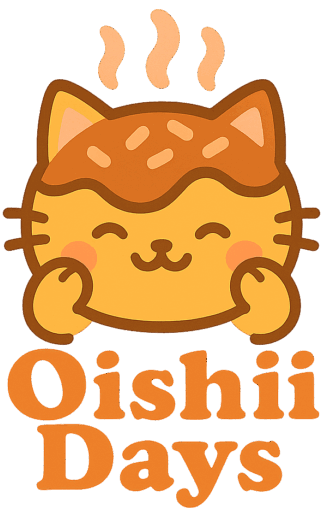My First Days: Hearing It Everywhere
When I began working as a caregiver at a day service in Gifu, I barely understood how to use otsukaresama desu.
On my very first week, I heard it constantly.
A coworker would help a client with their bath, and another would say warmly,
“Otsukaresama desu.”
Someone finished leading morning exercise, and another replied,
“Undou otsukaresama.”
Even during lunch, when staff finished eating and stood up, someone nearby would smile and say,
“Hirugohan otsukaresama.”
It surprised me because in English, we usually say “Good job!” or “Thank you!” at the end of a workday—not multiple times throughout it. But here, it was different. “Otsukaresama” wasn’t about finishing—it was about noticing.
It meant: I see what you’ve done. I know you worked hard. Thank you.
It’s Not Just About Being Tired
Literally, otsukaresama comes from “tsukareru,” meaning “to get tired.” So when you translate it directly, it sounds like, “You must be tired.” But the meaning is far deeper.
It’s not about exhaustion—it’s about recognition.
It acknowledges someone’s effort, no matter how small.
In Japanese culture, effort itself (doryoku) is valued as much as the result. When you say otsukaresama desu, you’re saying, “I recognize your work. You’ve done well.” It’s one of the gentlest, most human ways to express appreciation I’ve ever encountered.

What It’s Like at My Workplace
At my day service, otsukaresama desu is part of our rhythm.
We use it naturally—like breathing.
When someone finishes bathing a client, I often say,
“Ofuro kaijo otsukaresama desu.”
(Good work helping with the bath.)
When my coworker leads our red cord exercise program and finishes, I smile and say,
“Undou otsukaresama.”
When a staff member returns from a home visit, another greets them at the door with,
“Okaeri, otsukaresama desu.”
(Welcome back, thank you for your hard work.)
And at the end of each day, before everyone heads home, we bow slightly and say,
“Kyou mo otsukaresama deshita.”
(Thank you for your hard work today.)
It’s never forced. It’s simply how we express respect for each other’s efforts, even when we’re all tired.
The Comfort of Being Seen
In caregiving, the work can be both physically and emotionally demanding. Some days are heavy—assisting multiple clients, handling unexpected situations, or supporting those who feel anxious or lonely.
On days like that, hearing otsukaresama desu feels like a small blessing. It’s not dramatic or loud, but it carries warmth. It means someone noticed.
Even a brief nod and those few words make a difference. They remind me that I’m not working alone—that my effort, however ordinary, is part of something shared.
And when I say it to others, I see their eyes soften, their shoulders relax. It’s mutual encouragement, given quietly but sincerely.
The Many Shades of “Otsukaresama”
What I love most about this phrase is how versatile it is.
Depending on when and how you say it, otsukaresama desu can take on different meanings.
| Timing | Example | Meaning |
|---|---|---|
| Morning (arrival) | “Otsukaresama desu.” | Greeting coworkers who are already working. Like saying “Good morning, I see you’ve been busy.” |
| During work | “Otsukaresama.” | A casual thanks after completing a task. “Nice work!” |
| Before break/lunch | “Otsukaresama desu. Yukkuri yasunde ne.” | “Good job, take a good rest.” |
| After meetings or training | “Kaigi otsukaresama deshita.” | “Thank you for your effort during the meeting.” |
| Leaving before others | “Osaki ni shitsurei shimasu. Otsukaresama desu.” | “Excuse me for leaving first, thank you for your hard work.” |
| End of the day | “Kyou mo otsukaresama deshita.” | “Thank you for your work today.” |
Each variation is like a small gesture of teamwork—words that weave people together throughout the day.
What It Reveals About Japanese Work Culture
Japan has a reputation for long working hours, but also for strong teamwork and mutual respect. I think otsukaresama desu is one of the quiet forces that keep that teamwork alive.
Unlike English workplaces, where we often celebrate achievements with big praise, Japanese workplaces focus on steady effort. Otsukaresama keeps everyone connected through gratitude for the process, not just the result.
It also reflects the idea of wa (和)—harmony. By acknowledging others regularly, tension is reduced and cooperation grows naturally.
For me, coming from an American background, this was refreshing. It showed me that even a small phrase can carry deep care.
How It Changed My Way of Communicating
Before Japan, I used to think communication meant explaining or giving feedback. But working here taught me that communication can also mean simply recognizing.
Sometimes, the best thing you can say isn’t advice or instruction—it’s otsukaresama desu.
In my caregiving team, even when we’re busy, that phrase reminds us to slow down for one second and notice each other’s effort. It’s like saying, “I see you, I appreciate you, keep going.”
That’s the heart of teamwork.
Beyond the Workplace
I used to think otsukaresama desu was something you only said at work.
But now, I hear it everywhere.
After local festivals, when volunteers finish cleanup.
Between students after club practice.
Even among families at home.
It’s one of those phrases that quietly connects people in everyday life. It’s a small way of saying, “I see your effort.”
Sometimes, when I come home after a long day, my husband greets me with a soft,
“Otsukaresama.”
He might say it while handing me a drink or just meeting me at the door. And instantly, my tiredness melts away.
It’s such a small phrase, but it’s full of understanding — an acknowledgment that life can be tiring, and that doing your best is already enough.
That’s what makes otsukaresama desu so special. Whether spoken between coworkers or family, it carries the same warmth: I appreciate you. I see your effort. You’re not alone.
Why There’s No Perfect English Translation
In English, we might say “Good job,” “Thanks for your help,” or “You must be tired.” But none of these quite fit.
“Otsukaresama desu” has layers: appreciation, empathy, and respect all wrapped in one. It can be formal or casual, depending on how you say it. And it’s used all day long—not just at the end of something.
That’s what makes it so special. It’s not only polite—it’s connective.
What It Taught Me
Learning this phrase—and truly understanding it—changed how I see work, relationships, and care.
It taught me that words don’t need to be long to be meaningful.
That recognition can be quiet, not loud.
That gratitude can exist in the middle of the day, not only after things are done.
Now, I say otsukaresama desu naturally, and I mean it every time. It’s become part of how I express care—for coworkers, for clients, and for anyone doing their best.
Otsukaresama desu is such a simple phrase, yet it carries Japan’s warmth and spirit of teamwork within it.
At my day service, it’s a constant part of our daily rhythm—said after assisting with a bath, finishing exercises, cleaning, or taking a well-earned lunch break. It’s a small way to say, “You worked hard, I see you, thank you.”
For me, this phrase isn’t just workplace language anymore. It’s a way of living with empathy—acknowledging others, even in the smallest moments.
In the end, it’s one of the most “oishii” parts of my days in Japan: a reminder that effort itself is something beautiful, worth recognizing, and worth saying out loud.

